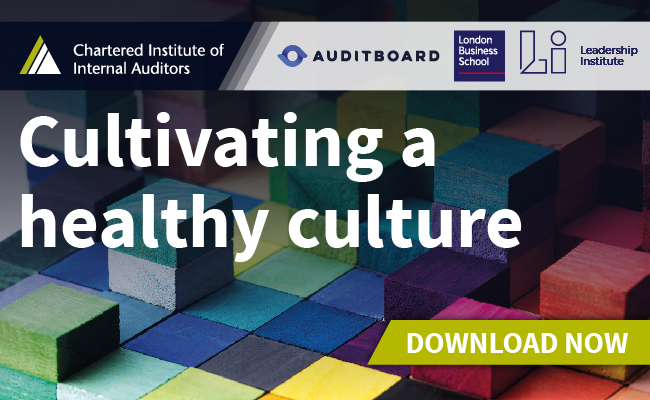Cultivating a healthy culture
Why internal audit and boards must take corporate culture more seriously in a post-Covid world
A healthy corporate culture differentiates an organisation and impacts customers, financial performance, growth, reputation, recruitment, and retention. An unhealthy or sub-optimal culture impacts all these categories. At its worst it is a critical risk to the attainment of the organisation’s aims and objectives and the sustainability of the organisation in the longer term.
These facts are widely recognised and repeatedly highlighted by a wide range of events we see in the media, regulators’ commentary, and the analysis of the root cause of company collapses.
The COVID-19 pandemic has also created unique challenges for organisational cultures. With large swaths of the workforce being forced to work remotely for much of the last two years, and the move towards ‘hybrid’ working in the longer term, many organisations are grappling with how to promote, embed, and sustain their culture going forwards.
Given this background, the need for internal audit engagement is clear. Culture is a risk and is fundamental to the success of every organisation, even more so in a post-Covid world.
Against this backdrop we must ask ourselves: “Are boards and internal audit focussing enough on corporate culture and are they taking it as seriously as they should?”.
This report seeks to identify where good progress has been made, challenge the profession to up its game, and provide guidance for those who have yet to start or are early in their corporate culture journey.
Download our culture report (PDF)
About the report
The aim of the report is to challenge the internal audit profession to be proactive and step up more in supporting the board to monitor, assess and provide assurance on corporate culture.
Over one hundred senior internal audit executives participated in the survey that underpins the research that we conducted as part of this report. In addition to the survey, we conducted a series of roundtable discussions. The roundtables with senior internal audit executives helped shed further light and provide in-depth insights on the survey results, as well as shared best practice in corporate culture and behavioural auditing.
The report also contains two case studies which illustrate good practice internal audit in monitoring, assessing, and providing assurance on organisational culture, which we hope will serve to inspire more internal audit functions, to undertake similar work.
Related content
Guidance
Organisational culture
Top tips: making culture part of your audit DNA
Reports
Organisational culture: Evolving approaches to embedding and assurance









